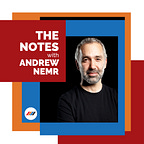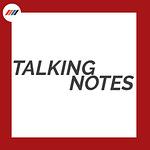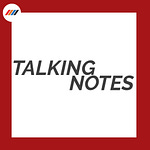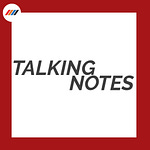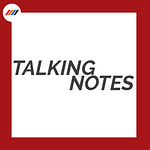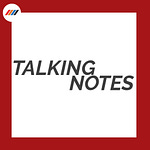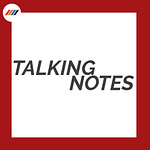In the wake of my father’s passing a few things have given me unusual comfort – doing the dishes after a shared meal with my mom, listening to really good clean comedy (thanks drybar), winning a game of solitaire, and finding and reading books my dad would have enjoyed. I realized this latter example to be true by way of indulging a habit I had when I was young.
I was no older than 14 when I first began visiting the book section at Costco. While my parents would be taking care of the essential grocery shopping, I would take a personal detour. “I’ll be right back,” I’d explain, as I rushed towards the center of the warehouse. My parents knew exactly where I was going and for what purpose. Located in the center of the warehouse, and spanning the width of the aisle, the book section at Costco feels like a condensed Barnes and Nobles. Stacked across a long flat table, books upon books stare up at the fluorescent lighting. They create a unique topography. Like a giant peering over the tops of buildings, one can scan all the book covers at once. There are books representing almost every possible genre – paperback novels, memoirs, current events, coffee table picture books, journals, kids’ books, even bestsellers. I spent many a visit to Costco perusing the covers and bringing something home with me.
There were plenty of impulse purchases, as well as real gems. It was by way of the Costco book section that I was first introduced to the work of Jim and Phil Wharton – the father and son team whose work in flexibility and strength training is a foundational part of my own physical wellness routine to this day. That purchase alone was worth all the other detours. On most occasions I would pick up one or two books, rendezvous with my parents, and share my discoveries. My parents gladly encouraged my reading habit by facilitating the purchasing process.
Things have changed since I was 14. I now visit Costco mostly alone, and don’t have to ask for permission to buy a book. And so, it was a few weeks ago that I took the detour to the book section after checking off most of my grocery list. I walked down the aisle, scanning the book covers, when two books immediately caught my eye. The first was Malcolm Gladwell’s most recent offering, Bomber Mafia. The second, describing a similar era, was The Splendid and the Vile, by Erik Larson. Both retell stories that take place during World War II – a period of history that was of particular interest to my dad. Bomber Mafia is written in Gladwell’s signature style – weaving non-fiction narrative, historical record, and thoughtful philosophical reflection – making the story of a crackpot group of early Air Force pilots, trainers, and strategists, into an introspective exploration of the nature and challenges of war. The Splendid and the Vile, in turn, is a straightforward non-fiction narrative retelling of the first year of Winston Churchill’s term as prime minister. In it Larson pieces together diary entries and historical record placing you in the midst of the action. Both books made me cry.
Is there anything to learn from war…
While covering a lot of ground, The Bomber Mafia essentially centers around two individuals, Haywood Hansell and Curtis LeMay, who embody two very different ideas while operating in similar capacities during the war. One considers their ideals – the idea that strategic bombing is technologically possible and ultimately saves lives in the context of war – the thing worth fighting for. The other considers the end of the war the thing worth fighting for – any ideal of means a secondary consideration. About two thirds of the way through the book Gladwell draws a connection between the experiences of Hansell and LeMay and that of Jesus Christ’s time in the wilderness following his baptism by John. Gladwell keeps the analogy alive sporadically through the remainder of the book. He is forward with his analogy. The temptation to do evil abounds in the wilderness. That temptation toward evil seems to be magnified by the dangling of what look like good ends during times of war.
Alternatively, Larson gives little commentary in The Splendid and the Vile. Instead, we see the choices of Churchill, Hitler, Roosevelt, and a host of secondary characters – family members, governments officers, and general citizens thanks to diaries kept by Mass-Observation diarists – through their diaries, minutes, directives, and more. The Mass Observation project particularly struck me as it gave Larson access to the voices of citizens of Great Britain scattered throughout the country which he artfully amplified. We see everyone’s characters come out in their words, choices, responses, and work ethic for example.
Both books give us a window into the realities of war, the intricate webs of relationships, thinking, the desires that guided choices, and ultimately the actions that came to the fore. We can do what we might with all of that. It all makes me think about my dad.
One degree of separation
I am one degree of separation from someone who experienced war. Not as a combatant mind you – which has its own impact – rather, my dad was an individual attempting to live life as a follower of Jesus, guide his family, and keep his soul intact while the country around him was destroying itself. The Lebanese Civil War came to head just two years after my mom and dad were married. There had been violence preceding the fateful day of April 13, 1975 – the day many look to as the start of a war that would last more than 18 years.
It is enough to say that my mom and dad experienced many of the horrors of civil war. Death was a common part of life for them. But more than that, there was an intensity to the kind of death that was experienced. This was violent beyond measure. My father sorted through mass graves to find dead friends, identified body parts that had been mutilated, witnessed inter-family violence, and saw his wife (my mom) hit by a ricocheted bullet in their own home. It is no wonder that my dad, when asked about starting a family, said, “This is no place to bring a child into the world.”
As a teenager and young adult, I naturally judged my father’s ability to father me. Like any good know-it-all, I carried ideas of what I would do differently, and what I thought, would be better than what my dad was doing. I never really made the connection between what my dad had experienced and the choices he made as a father. My dad would talk about things “back home,” but never made his experience of the war a central aspect of who he was. He never centered his own trauma in the life of our family. He never asked for special treatment on account of it. It wasn’t until I was much older that I realized how much of an act of love this was.
Some may say that my dad should have talked to someone professional, done the work of inner healing, searched for the proper means to which he would have experienced an easier life. Maybe. I would only submit this. My dad took to his inner battles in the same way Curtis LeMay fought in the pacific theater – with a particular end in mind. He sacrificed his own body, in which lived much tension, for the sake of caring for his wife and son. Without professional assistance, he finished his race, keeping his marriage thriving until the very end, and raising a son who…well, better someone else finish that sentence.
I’m not advocating for a denial of counseling or therapy. Indeed, I have benefited from those practices. Rather I’m sharing this story as an example of the power of love for those willing to sacrifice. Then again, the willingness comes from a desire. And as I’ve shared elsewhere, I think my dad’s desire to be a good husband and father pervaded his being to a dramatic degree. He wanted little else.
I always wondered why my dad resonated with war movies, western movies, and in particular the period of World War II. I wonder if it wasn’t a reflection of his own experience of life. The choices he had to contend with. The hard things he had to do for the sake of the life that he was hoping for, for himself and his family (although the two weren’t really separate for him).
As a kid, my family would sit around our dining room table and talk. A lot. Every night in fact. The conversations would meander organically from the activities of the day, global politics, and the ramifications of individual, communal, and institutional formation. Much in the same way Gladwell’s book draws out grander themes from the story of a group of pilots, our conversations made the different areas of life intrinsically connected. I took to this kind of thinking. My mind would easily wrap itself up in it. But then there was the other side of life – the practice. My dad and I would play together, share activities, and generally get a kick out of one another. As in Larson’s book, sometimes a life is made most clear by the activities that life has expressed. In my dad’s case I consider it a miracle that someone who experienced what he did was able to express so much joy, love, self-composure, gentleness, and kindness.
He wasn’t perfect, but he contended with the ideals of means and the realities of the wars he dealt with and made the best choices he could. Who I have become is in large part because of the the many choices my father (and mother of course) made and the tools and experiences they facilitated for me to have. For what he gave me, training me up in the way to go, I will be eternally grateful.
With my dad gone, I feel a little more alone in the choice-making matters of my own life. I feel a little less protected, even a little less looked after. These are not necessarily bad things, or even realities, but rather sensations. My dad was a formative character whose absence leaves a hole in the day, after all. As life moves forward, sometimes it helps me to remember a particular part of who my dad was. Remembering a wonderful part of my dad through these books was an unexpected and sweet experience.

